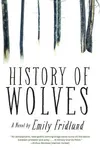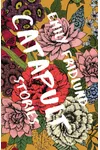Picture a Minnesota-born storyteller who crafts haunting tales of youth and belonging—meet Emily Fridlund! With her debut novel History of Wolves and short story collection Catapult, Fridlund has captivated readers with her lyrical prose and deep dives into the complexities of growing up. Her work, rich with gothic undertones and intimate narratives, has earned her a spot among contemporary literature’s rising stars.
Born in 1979, Fridlund’s unique voice draws from her roots in the Midwest and her academic journey, making her stories resonate with anyone who’s ever felt like an outsider. Let’s explore how this compelling author carved her path in the literary world.
The Making of Emily Fridlund
Growing up in Edina, Minnesota, Emily Fridlund spent her childhood surrounded by the stark beauty of the Midwest, where camping trips to Lake Superior sparked her love for nature. This connection to the wild would later shape her vivid settings. A self-described 'city girl' with a suburban heart, she pursued a bachelor’s degree at Principia College, followed by an MFA in fiction from Washington University in St. Louis. Her academic journey culminated in a PhD in Literature and Creative Writing from the University of Southern California, where she honed her craft under mentors like Aimee Bender.
Fridlund’s early writing appeared in journals like Boston Review and ZYZZYVA, showcasing her knack for blending dark humor with poignant themes. Her persistence paid off when her stories caught the eye of literary gatekeepers, setting the stage for her breakout in 2017.
Emily Fridlund’s Unforgettable Stories
Fridlund’s debut novel, History of Wolves (2017), is a mesmerizing coming-of-age tale set in the austere woods of northern Minnesota. The story follows Linda, a teenage girl navigating isolation, desire, and moral ambiguity after a scandal involving her teacher and a tragedy with a neighboring family. A finalist for the 2017 Man Booker Prize and winner of the Sue Kaufman Prize for First Fiction, the novel stunned critics with its poetic prose and unsettling depth. NPR called it 'electrifying,' praising its genre-defying blend of thriller and bildungsroman.
That same year, Fridlund released Catapult: Stories, a collection of darkly comic and gothic short stories exploring human connection and disconnection. Selected by Ben Marcus for the Mary McCarthy Prize, the collection delves into quirky scenarios—like teens building a time machine or a man’s fraught bond with his dog—infused with surrealism and emotional heft. Critics lauded its 'temerity and insight,' with Publishers Weekly noting its 'canny and surprising' take on relationships.
Fridlund’s style is a masterclass in precision and atmosphere. Her sentences hum with rhythm, weaving natural imagery with psychological nuance. Themes of belonging, guilt, and the fluidity of power dominate her work, making her stories both intimate and universal. Whether through Linda’s wolf-obsessed lens or the eccentric characters of Catapult, Fridlund invites readers to question the boundaries of morality and identity.
Why Emily Fridlund Matters
Emily Fridlund’s impact lies in her ability to transform the coming-of-age narrative into something raw and revelatory. Her stories resonate with readers who crave fiction that’s as thought-provoking as it is beautiful, offering a fresh perspective on the Midwest’s cultural and natural landscape. As an assistant professor at Cornell University, she inspires a new generation of writers, blending academic rigor with creative passion.
Her awards and nominations—Man Booker finalist, Sue Kaufman Prize, and more—cement her as a literary force, yet it’s her empathetic portrayal of outsiders that leaves a lasting mark. Fridlund’s work challenges us to see the world through the eyes of the overlooked, making her a vital voice in contemporary fiction.
- Born: 1979, Edina, Minnesota
- Key Works: History of Wolves (2017), Catapult: Stories (2017)
- Awards: Sue Kaufman Prize for First Fiction, Mary McCarthy Prize, McGinnis-Ritchie Award
- Current Role: Assistant Professor at Cornell University
Snag History of Wolves or Catapult and dive into Emily Fridlund’s haunting, heartfelt world of literary fiction!

